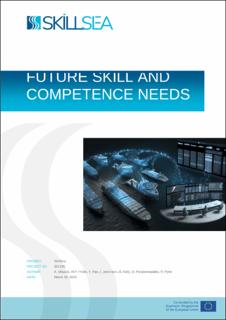| dc.description.abstract | In this report we have reviewed outlook reports from key shipping businesses and captured insights from visionaries within the industry to establish a solid impression of the future needs of maritime shipping. Through this work, the resulting report places maritime professionals firmly in the 21st century. The results forecast future skills and competence needs originating from the four key trends that are shaping the future: sustainable development; collaboration of clusters; digitalisation; and education. In line with these trends, and endorsed through our interviews, one of the rational solutions for improving current maritime professional education and training is simulation-based learning, with lifelong learning attribution. Three areas could be addressed: 1. Developing maritime professionals’ competence and skillsets in response to the rapid development of onboard technologies such as ICT and sustainable technologies. 2. Improve seafarers’ soft skills in leadership and management with new training programmes aimed at both furthering their onboard career and supporting the transition to an onshore career. 3. Establishing bridging programmes that complement the IMO certificate-based education towards occupational profiles with a wider reach in the areas of digital, sustainable, transversal and leadership skills. The aim is to help bridging the distances between shore-based and seagoing profiles. We envision these programmes can be established as module courses to attract maritime professionals for the future shipping industry. In addition, the research points to the benefit for shore-based maritime personnel to develop a better understanding of the challenges and issues that seagoing maritime professionals face. This will both facilitate innovation and enable better sea-land collaborations. It is further found that there is a need for more transversal skills between occupational profiles. When it comes to mobility in maritime education, this needs to become a reality. This study does not point in any direction as to where the solution lies for mobility; most likely it will be a combination of making existing solutions work and new initiatives to drive mobility. | en_US |
